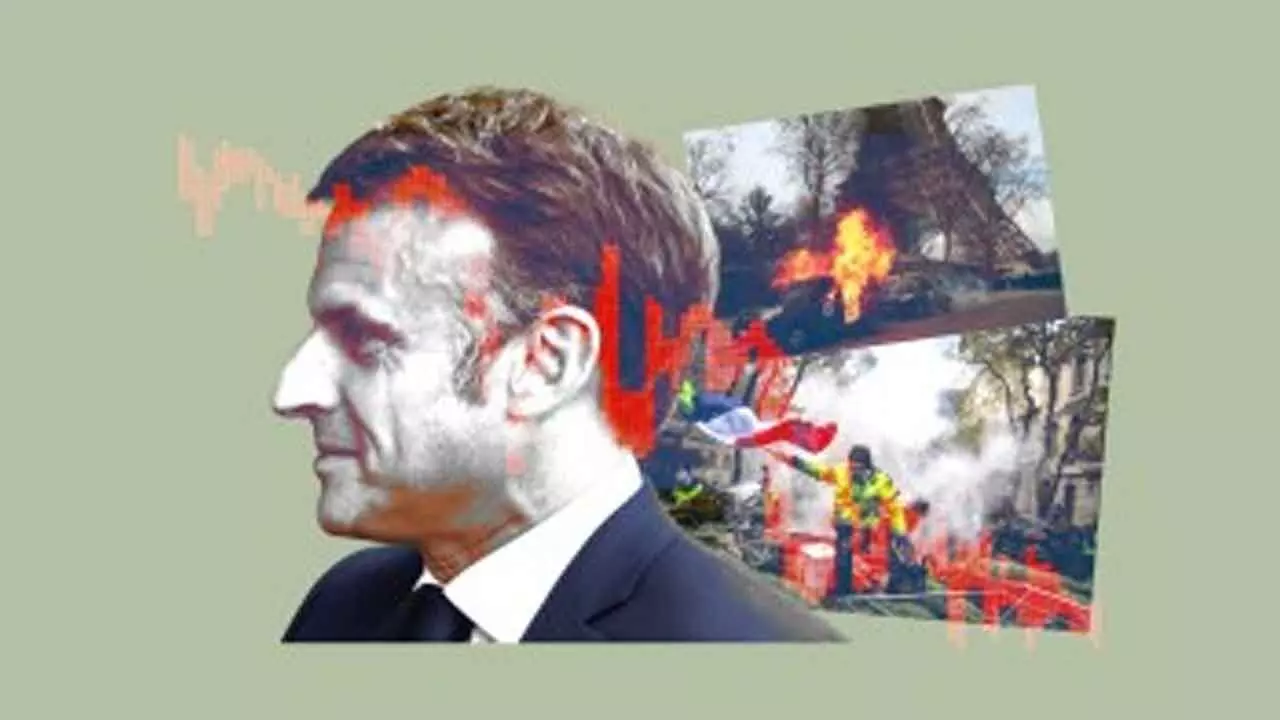728x90 - Google Ads
728x90 - Google Ads
336x280 - Google Ads
France ‘seeking’ IMF bailout has a lesson for every nation

336x280 - Google Ads
300x600 - Google Ads
Always live within your means; don’t spend more than you earn; save money for a rainy day—these are time-tested, universally accepted pearls of wisdom. They hold relevance to humans as much as they do for governments. When the latter adhere to such pragmatism, they are fiscally responsible. When they don’t, it is a disaster—irrespective of whether the country is rich or poor. So, France—a member of G7, a nuclear state—may soon have to seek a bailout from the International Monetary Fund (IMF). Prime Minister François Bayrou said on August 25, “Our country is in danger because we are on the brink of over-indebtedness.”
Finance Minister Eric Lombard added that IMF intervention is “in front of us.” The country’s debt-to-GDP ratio stands at 114 per cent. In comparison, India’s ratio is 80 per cent, which the IMF projects would fall to 75.8 per cent in 2030. Decarbonisation requires significant additional investment in the next decade. Although these are necessary expenditures, they add enormous strain to an already burdened fiscal system. Besides, social spending has soared in the last few years, rising from 28.4 per cent of GDP in 2006 to 30.65 last year, and peaking to 34.9 per cent in the pandemic-hit 2020.
To make matters worse, illegal immigration in France has been rising alarmingly; many immigrants depend on welfare benefits. France’s annual bill for state-funded healthcare for migrants is reported to be over €1.2 billion. These expenditures not only strain public finances but also fuel social and political tensions, complicating any attempt at reform. Yet perhaps the most intractable challenge is political. Left-leaning parties remain influential and are ideologically opposed to structural economic reforms. Any government effort to reduce social spending, streamline welfare, or curb fiscal deficits faces fierce resistance from these groups.
Their doctrinal opposition to austerity, privatisation, and labour reforms has created a political stalemate that makes meaningful fiscal consolidation nearly impossible. This political deadlock leaves the French government with limited room to maneuver, even as debt spirals out of control. The danger here is not abstract. If its fiscal position continues to deteriorate, markets could lose confidence in the government’s ability to manage its debt. A rise in borrowing costs would worsen the situation, triggering a vicious cycle of higher interest payments, bigger deficits and more borrowing.
Quite apparently, at some point, even a G7 country could find itself forced to seek outside assistance, including financial. The very notion of France—home to the eurozone’s second-largest economy—turning to the IMF for support underscores how dire the situation has become. The lesson from France’s predicament is clear: fiscal responsibility is not optional, even for rich nations. Ignoring the basic principles of financial prudence-spending within limits, saving for emergencies, and investing wisely—invites the same consequences for countries as it does for families: insolvency, dependence, and loss of autonomy.
Unless France undertakes serious reforms and exercises discipline in public spending, it risks finding itself in the humiliating position of being rescued by the very institution that poorer nations often turn to in times of crisis. For France, the time for denial is over. The warning signs are clear, the numbers are unsustainable and political excuses are running out. Either the country chooses reform now, or it risks being forced into reform later under the unforgiving conditions of an IMF bailout.

